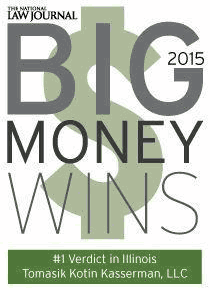The New Normal May Not be so New
 By: Daniel M. Kotin
By: Daniel M. Kotin
Here we are in March 2023, and I’m hearing the drum beat of voices in the legal professional lamenting the “new normal” – a world of hybrid work schedules, and all virtual meetings, depositions and court hearings. Combine that with the advent of artificial intelligence technology, and many in our field are beginning to feel that the law practice as we know it is ending.
These concerns are well-founded. Success in our profession is based upon personal relationships. If the simplicity and convenience of AI and Zoom replace the face-to-face human interactions upon which our professional reputations are based, then there will be little left to distinguish one lawyer from another. But I’ve had a couple of experiences over the past month which gives me hope for our future. They reminded me of the fact that genuine growth and satisfaction in law will always be in-person.
About three weeks ago, I had the opportunity to present at an Illinois Trial Lawyers Association seminar. My topic was “Jury Deselection to Maximize Damages in Injury Cases.” The word “deselection” comes from a decades-old understanding that the rules of procedure rarely allow a trial lawyer to “select” an ideal jury for his or her case. Rather, good lawyering involves the art of identifying and eliminating those potential jurors who will be particularly bad for a given party.
I was assigned 25 minutes to speak on this topic. The truth is that jury selection, like most other parts of trial advocacy, is much more an art than a science. I could easily fill that time slot with simple musings from my 30-years of experience in the always uncomfortable process of voir dire – picking a jury.
But before starting to draft my outline, I recalled an evening over the holidays when my college-age kids showed me the new artificial intelligence chatbot, ChatGPT. My kids suggested that trial lawyers were about to be replaced by AI. Is this true? Am I becoming obsolete? In theory, the endless resources of the internet could produce a more fulsome lecture than little old me. Let’s find out. I asked ChatGPT to do exactly what I had been asked to do for the seminar: “Write a 25-minute speech about deselecting a jury to maximize damages in an injury case.”
Seconds later, ChatGPT produced a long paper. It was pages and pages of well-written prose about the American jury trial system, and the process of seating citizens to sit as jurors in judgment of their peers. If the paper were submitted as the final exam for an 11th grade civics class, I would probably give it a B+. But it was woefully inadequate for an audience of trial lawyers. In addition to being absurdly simplistic, the document lacked any advice, opinion, or persuasive editorial about how to engage in this very complicated aspect of a trial. My own thoughts and ideas, without the vast expanse of the internet, would have to suffice.
And suffice they did! The program was fantastic. 200 lawyers sitting in a room – live, in person, not on Zoom. Ten of us spoke, each on a separate, related topic. Each speaker seemed to gain energy and traction from the speakers before him or her. We spoke to people, not to a camera. And we answered questions called out from the audience, not from a chat box on a Zoom screen. It was a great day for everyone involved.
Just last week, I had a similar experience teaching at the Midwest Trials Program for the National Institute for Trial Advocacy. This was a five-day, in-person program, attended by 50 young lawyers from across the country who committed to a week-long bootcamp experience to maximize their trial skills. “Learning by doing” is the NITA philosophy. And “doing” means being on your feet, in front of an audience, making mistakes, doing it again. No edits. No re-takes. No filters. Comments and criticism from faculty were likewise live, in the moment, face-to-face with everyone listening. Then maybe there were a few more private comments from a faculty member in the hallway during breaks, or while eating lunch.
The improvement in skills demonstrated by these lawyers over five days was remarkable. I am confident that almost every participant was truly happy with the commitment and the experience – time away from the comfort of home and the inconvenience of travel be damned. During the lockdown days of the pandemic, NITA adapted to on-line courses because there simply was no other choice. But these programs are dwindling, and in-person training is back all over the country.
A year from now, perhaps we will have a better idea of what the “new normal” really means. But these two recent experiences give me hope that our society will understand that law is a profession which is meant to be practiced live, in-person, and face-to-face.

 312-605-8800
312-605-8800




 312-605-8808
312-605-8808






